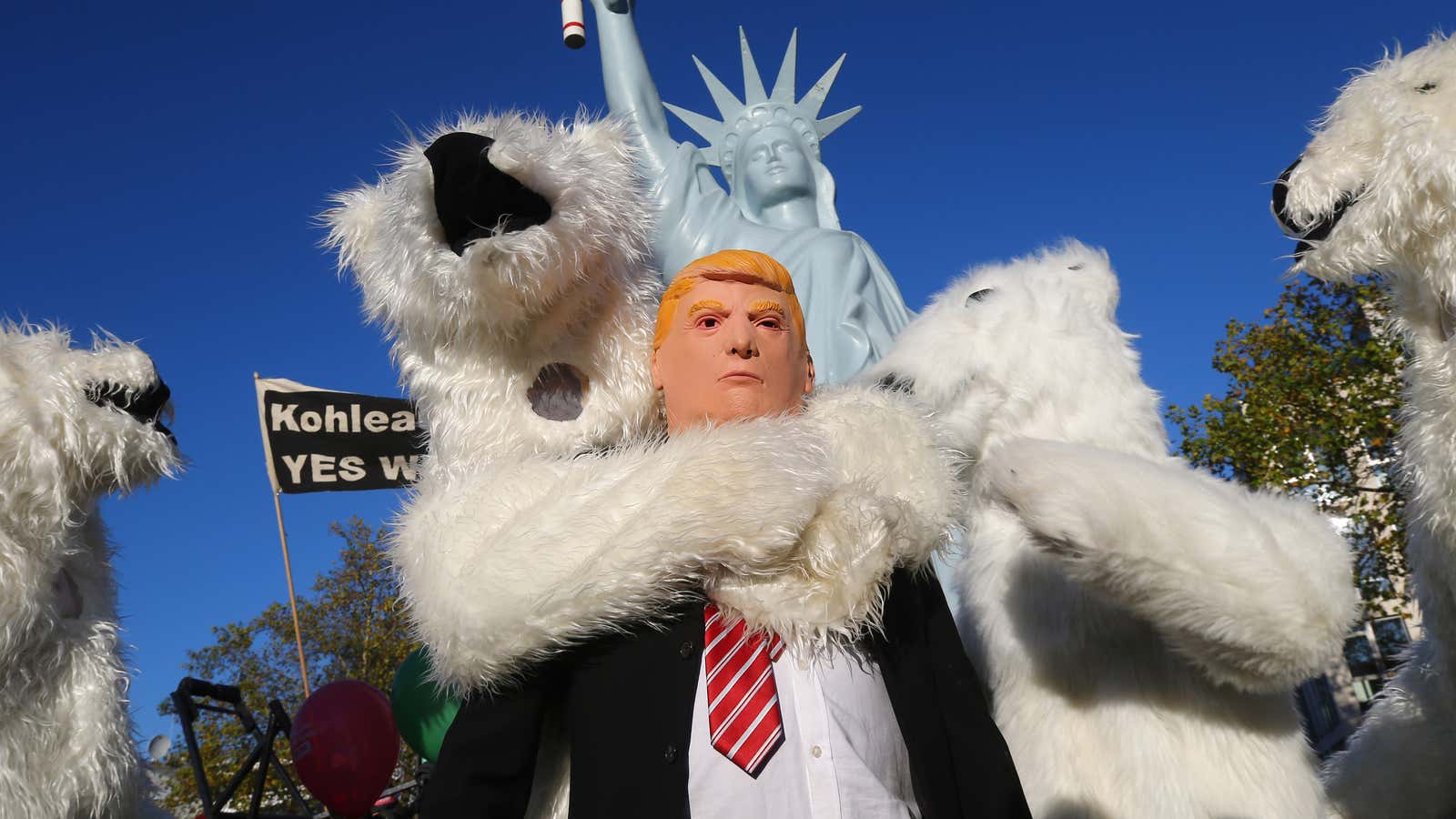When Donald Trump pulled the US out of the Paris climate accord on June 1 last year, many worried whether the voluntary, non-binding, global deal to avoid catastrophic climate change could survive.
The Paris accord requires that every few years, there will be negotiations for more ambitious goals on reducing emissions. In the lead-up to the latest talks, the doubts of the long-term survival of the Paris accord are getting stronger. The agreement needs 55 countries putting out at least 55% of the world’s emissions. And with the US gone, it’s easy for Paris to fail if China were to pull out now.
It’s not quite come to that, but it could happen. “Just as the ‘China card’ is played on the Hill in Washington, US inaction is also used in Beijing for not doing more,” Li Shuo, senior global policy adviser at Greenpeace East Asia, told Climate Wire (paywall). “There is indeed skepticism from the strategic community—the ones that are nationalistic and view US-China relations as a zero-sum game.”
In any case, the Paris agreement is doomed without the US, the second-largest emitter. To keep global warming in check, the world as a whole must reach zero emissions before the end of the century.
Can we imagine the US rejoining? So far, Trump’s Republicans have not paid a political price for their climate-denying stance. But there’s a growing divide between Republican voters, who largely believe in the scientific consensus that climate change is being driven by human activity, and the party’s fossil-fuel funders, who deny the consensus view.
That’s one reason why lobbyists are looking to align the Republican agenda with clean energy and convert fence-sitters in swing seats during the US midterms later this year. “Clean energy… doesn’t alienate the base,” according to Jay Faison, CEO of ClearPath, a clean-energy lobbying group that had 13 out 15 Republicans it supported win seats in the House and Senate during the 2016 elections.
And there are already hopeful signs coming from within Trump’s own Republican Party, which hasn’t always (paywall) been an enemy of the environment. Over the past few years, unusual coalitions have formed between climate-denying Republicans and climate-championing Democrats. They are visible in laws introduced or passed that support nuclear power, energy storage, carbon-capture technology, and even renewable energy. They show up when the US Congress, against Trump’s wishes, continues to grow budgets for science, climate, and energy research.
It’s not impossible to imagine that it may be Trump’s own party that ends up restoring the US’s place at the head of the table for fighting climate change.
This was published in the weekend edition of the Quartz Daily Brief, our news summary that’s tailored for morning delivery in Asia, Europe and Africa, the UK, or the Americas. Sign up for it here.
